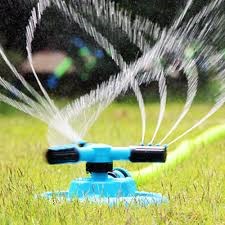Lawns may be a little drier this summer after Sunshine Coast Regional District (SCRD) directors voted to update the drought management plan to impose tighter watering restrictions.
Directors voted to ban hand watering and low flow drip irrigation of lawns at Stage 3. According to a report, “Such a restriction will better correlate to other prohibited uses at Stage 3, such as car washing and pressure washing for residential and commercial water users. It will also more consistently restrict water uses to respond to an acute water supply situations that would trigger Stage 3.” It will remain permissible to water landscaping plants, fruit and vegetables by hand and with low flow drip irrigation.
Each year staff reviews the drought management plan, which establishes water use restrictions during various stages of drought. While Stage 1 water use restrictions are imposed annually from May 1 to Sept. 30, stages 2, 3 and 4 respond to supply conditions that are moderate, acute and severe.
At the April 19 infrastructure committee meeting, West Howe Sound director Ian Winn said he hoped to see a calendar approach to the imposition of Stage 2, “but until Mother Nature sits on our staff and contributes, I don’t think we’ll ever get to that point.”
Implementing these stages relies on a framework that considers seasonal trends, snowpack assessments, available water in storage, stream flows, weather, water consumption, and the performance of the water supply system.
Garry Nohr, director for Halfmoon Bay, was the only director to oppose the updated watering restriction, stating, “Somebody’s got to protect the lawn people.”
At the same meeting directors voted to move forward with the process for acquiring a long-term loan of $5.95 million to fund the installation of universal water meters in the District of Sechelt. The board incorporated the proposed expenditure in the 2018 budget, after a grant application to fund the project was rejected.
The loan’s term would be 20 years. Before the SCRD can move forward with the loan, it must first get permission from its constituents through the Alternate Approval Process (AAP). The process involves determining a timeline for providing public notice, establishing who is eligible to vote and when the vote will take place.
Other options presented by staff were short-term financing over a five-year term, and a combination of short-term financing over a five-year term and drawing from reserves. Neither of those options were recommended by staff on the basis of being too financially risky.
Another water-related topic addressed at the April 19 meeting was an introductory report on a future water reservoir.
The committee received a report outlining the project for a feasibility study for a water reservoir. Currently the concept consists of a lined reservoir that collects water in the spring, with infrastructure required to channel water from Chapman Creek. No sites have been proposed yet. A desktop study and field reconnaissance is slated for this summer.



